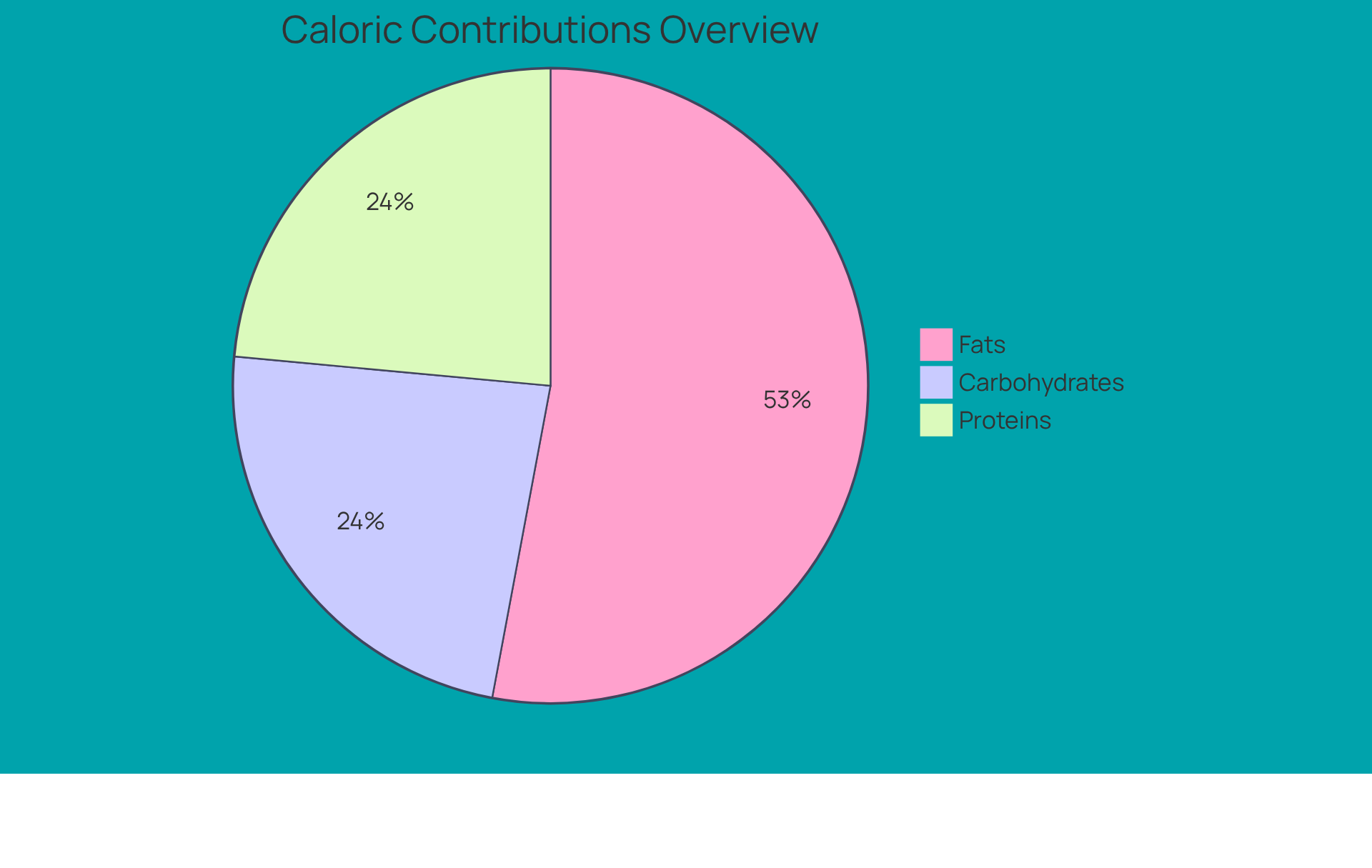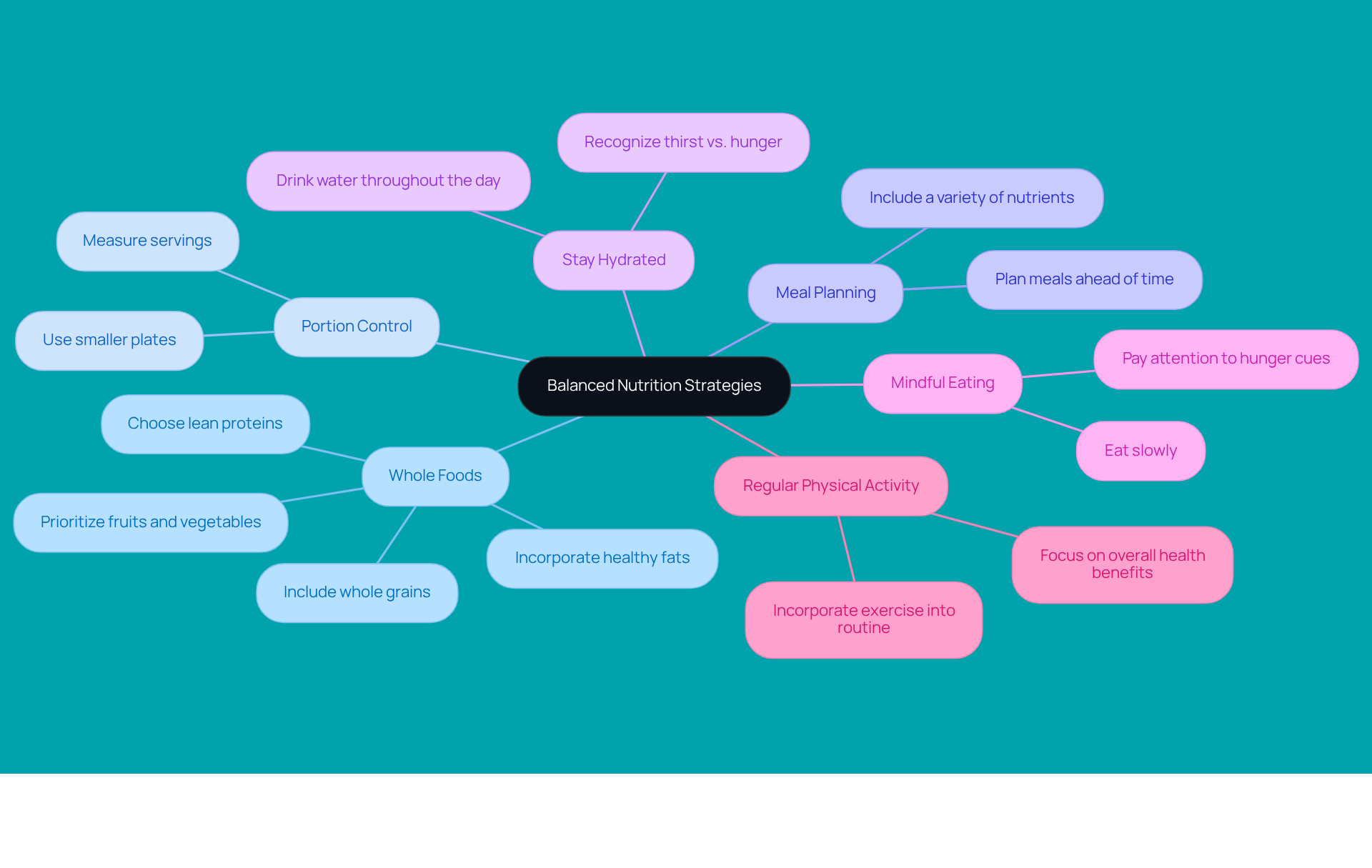Overview
Are you wondering how many calories you should consume daily for your health? You’re not alone in this journey. Understanding your caloric needs is essential, and a great starting point is the Mifflin-St Jeor equation, which helps you determine your Basal Metabolic Rate (BMR). From there, you can adjust based on your activity level and personal goals.
This article offers a detailed method for calculating your BMR and explains how to assess your Total Daily Energy Expenditure (TDEE). It also highlights important factors like age, gender, and activity level that influence your caloric needs. By understanding these elements, you can make informed dietary choices that align with your wellness goals.
Imagine if you could take control of your health by simply knowing how to calculate your daily caloric needs. With the right information, you can empower yourself to make choices that nurture your body and mind. So, let’s embark on this journey together, ensuring you feel supported every step of the way. You deserve to thrive!
Introduction
Understanding the intricacies of caloric intake is essential for anyone aiming to enhance their health and well-being. Imagine if you could navigate your dietary choices with confidence, ensuring you fuel your body appropriately.
However, you might be wondering: what is the precise number of calories you should consume daily? What factors influence these needs, and how can you tailor your intake to meet your personal health goals?
This article delves into the calculation of daily caloric requirements, offering insights and strategies that empower you on your journey to better nutrition. Together, we can explore the path to a healthier you.
Understand What Calories Are
Calories are the energy units our bodies derive from food and drink, and they play a crucial role in fueling everything we do—from basic metabolic processes to our daily activities. When we eat, our bodies transform that food into energy, measured in these units. You might be wondering where this energy comes from. It’s essential to understand that it originates from three macronutrients: carbohydrates, proteins, and fats. Each of these provides a different amount of energy:
- Carbohydrates: 4 calories per gram
- Proteins: 4 calories per gram
- Fats: 9 calories per gram
This knowledge is vital for anyone looking to take control of their body or enhance their health. By understanding how these macronutrients work, you can make informed dietary choices that align with your wellness goals. Imagine if you could navigate your food options with confidence, knowing exactly how to fuel your body effectively. Together, we can embark on this journey toward better health, one informed choice at a time.

Calculate Your Daily Caloric Needs
Calculating cuantas calorias debo consumir al dia can feel overwhelming, but it doesn’t have to be. Let’s break it down together, using the Mifflin-St Jeor equation, a method recognized for its accuracy. Here’s a simple way to approach it:
- Determine Your Basal Metabolic Rate (BMR):
- For men: BMR = 10 × weight (kg) + 6.25 × height (cm) - 5 × age (years) + 5
- For women: BMR = 10 × weight (kg) + 6.25 × height (cm) - 5 × age (years) - 161
- Calculate Total Daily Energy Expenditure (TDEE): Next, multiply your BMR by an activity factor that reflects your lifestyle:
- Sedentary (little or no exercise): BMR × 1.2
- Lightly active (light exercise/sports 1-3 days/week): BMR × 1.375
- Moderately active (moderate exercise/sports 3-5 days/week): BMR × 1.55
- Very active (hard exercise/sports 6-7 days a week): BMR × 1.725
- Super active (very hard exercise/physical job & exercise 2x/day): BMR × 1.9
- Adjust for Your Goals: You might be wondering how to tailor this to your needs. If your goal is to lose weight, consider creating a caloric deficit—perhaps by reducing your intake by 500 calories per day, which could lead to about 1 pound of weight loss each week. On the other hand, if gaining weight is your aim, you could create a surplus by increasing your intake by 500 calories daily.
Remember, this journey is personal, and it’s important to find what works best for you. Together, we can navigate these steps towards a healthier lifestyle.

Consider Factors Affecting Caloric Intake
Several factors can influence cuantas calorias debo consumir al dia, and understanding them is a crucial step towards achieving your health goals.
- Age: As we age, our metabolism often slows down, leading to reduced energy requirements. It's important to recognize this change and adjust accordingly.
- Gender Differences: Generally, men require more energy than women due to greater muscle mass and higher metabolic rates. This distinction can help tailor your dietary needs.
- Activity Level: Imagine if you could fuel your body based on your lifestyle. More active individuals expend more energy, which means they need a greater food intake to support their activities.
- Body Composition: Did you know that muscle tissue burns more energy at rest than fat tissue? Therefore, those with higher muscle mass may find they require more energy to maintain their well-being.
- Health Conditions: Certain medical issues, such as thyroid disorders or metabolic syndrome, can impact your metabolism and energy needs. If you have any health concerns, it's wise to consult with a healthcare professional.
- Lifestyle Factors: Stress, sleep quality, and overall lifestyle can also play a significant role in how many energy units you require. Reflecting on your daily habits can provide insights into your caloric needs.
By understanding these factors, you can better determine cuantas calorias debo consumir al dia, paving the way for a healthier, more balanced life. Together, let’s take the next step in your wellness journey.

Implement Strategies for Balanced Nutrition
To ensure a balanced nutritional intake while managing calories, let’s explore some supportive strategies together:
- Focus on Whole Foods: Imagine prioritizing fruits, vegetables, whole grains, lean proteins, and healthy fats. These nutrient-dense foods not only nourish your body but can also help you feel full with fewer calories.
- Portion Control: You might be wondering how to avoid overeating. Being mindful of portion sizes is key. Consider using smaller plates and measuring servings to help you stay on track.
- Meal Planning: Planning your meals ahead of time can make a significant difference. It allows you to include a variety of nutrients and helps you avoid impulsive eating.
- Stay Hydrated: Sometimes, thirst can be mistaken for hunger. By drinking water throughout the day, you can better manage your appetite and support your overall health.
- Mindful Eating: Paying attention to your hunger cues and eating slowly can transform your mealtime experience. This practice not only enhances enjoyment but also helps prevent overeating.
- Regular Physical Activity: Incorporating exercise into your routine is essential. It not only helps manage weight but also contributes to improved overall health.
By implementing these strategies, we can create a sustainable approach to nutrition that supports your health and wellness goals. Together, let’s take the next step on this journey towards a healthier you.

Conclusion
Understanding how to calculate how many calories you should consume daily is essential for anyone aiming to improve their health and wellness. Imagine grasping the concept of calories as energy units derived from macronutrients and applying accurate calculation methods. This knowledge empowers you to make informed dietary choices that align with your personal health goals.
You might be wondering about the key arguments discussed, such as the importance of determining your Basal Metabolic Rate (BMR) and Total Daily Energy Expenditure (TDEE). Recognizing the various factors that influence caloric needs—like age, gender, activity level, and body composition—is crucial. Additionally, implementing practical strategies for balanced nutrition, such as focusing on whole foods and practicing portion control, can significantly enhance your ability to manage caloric intake effectively.
Ultimately, the journey toward achieving a healthier lifestyle involves understanding your unique caloric needs and making choices that support your overall well-being. By taking actionable steps, such as calculating your daily caloric requirements and adopting mindful eating practices, you can empower yourself to create a sustainable and balanced diet. Embrace this knowledge and take control of your health journey today, as every informed choice contributes to a brighter, healthier future. Together, let’s make these positive changes and support one another along the way.
Frequently Asked Questions
What are calories?
Calories are the energy units that our bodies derive from food and drink, crucial for fueling metabolic processes and daily activities.
How does the body obtain energy from food?
The body transforms food into energy, measured in calories, which comes from three macronutrients: carbohydrates, proteins, and fats.
How many calories do different macronutrients provide?
Carbohydrates and proteins provide 4 calories per gram, while fats provide 9 calories per gram.
Why is understanding calories important?
Understanding calories is vital for taking control of one’s body and enhancing health, allowing individuals to make informed dietary choices that align with their wellness goals.




